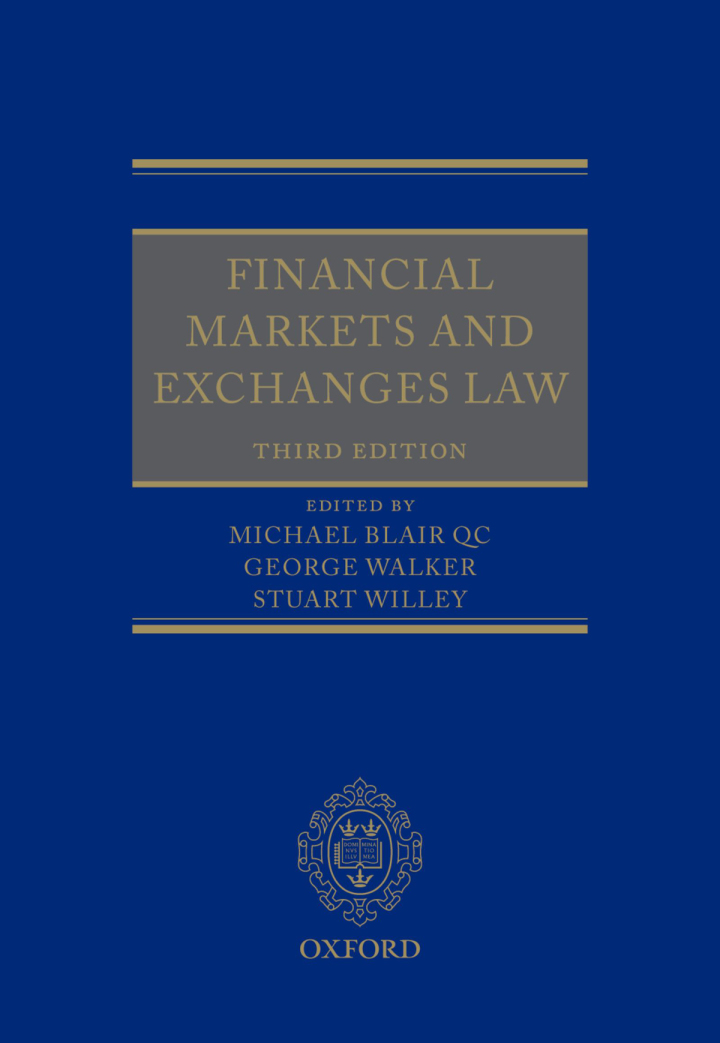Financial Markets and Exchanges Law 3rd Edition
$113.75
Attention: This is just ebook, Access Codes or any other Supplements excluded! / File Delivery: Sent Via Email within 24 hours!
SKU: 7f82ca7d0b98
Category: Law Textbooks
Description
-
Author(s)OUP Oxford
-
Publisher
-
FormatPDF
-
Print ISBN
9780192562548, 0192562541 -
eText ISBN
9780192562548, 0192562541 -
Edition
-
Copyright
- Details
This work is essential for banking and investment business practitioners and legal advisers working in those fields. It provides an invaluable reference source on current on-exchange and off-exchange market trading, and regulatory issues, in the payments, investments, debt, securities, and derivatives sectors. The coverage relates to the UK, the EU, the USA and to some Asian markets, while also providing an account of the international architecture and systems. The book provides a comprehensive and authoritative analysis on the regulation of financial markets and market infrastructure including the new area of financial technology. It focuses on stock markets and exchanges, associated trading, clearing and settlement, and payment systems, set in their historical and current contexts. The new edition reflects recent changes to the various systems of financial regulation. It examines specific markets including equity, debt, and financial derivatives (both on-exchange and off-exchange), from UK, European, and international perspectives. It also includes associated topics, such as global custody and credit rating, together with a new chapter on transaction reporting. Since the second edition, published in 2012 reflecting the 2007-9 financial crisis, there have been further changes to financial regulatory regimes at national, regional, and international levels. In the UK and the EU generally, the implementation of MiFID II has had a significant impact on the architecture and operation of the markets. Institutional revision within the EU is covered, including the development of the role of the European Securities and Markets Authority (ESMA), and allied developments on listing, prospectuses, payments, and electronic money. The book examines regional developments alongside domestic measures, including the changes to the FCA Handbook (particularly on Listing, Prospectuses, and Disclosure) and the Brexit-driven “on-shoring” into the UK of the EU regime. In addition, there are new chapters on Regulatory Technology and Islamic Capital Markets. This third edition is timely in the UK because of Brexit, and in the EU due to new emphasis on systemically important elements of market infrastructure, and the shift of policy making from the member states to the EU central institutions.
Related products
-

A Measure of Freedom
Rated 0 out of 5$29.25 Add to cart -

Atiyah’s Introduction to the Law of Contract 6th Edition
Rated 0 out of 5$30.88 Add to cart -

Agency in Mental Disorder Philosophical Dimensions
Rated 0 out of 5$26.00 Add to cart -

A Theory of International Organization
Rated 0 out of 5$11.05 Add to cart

